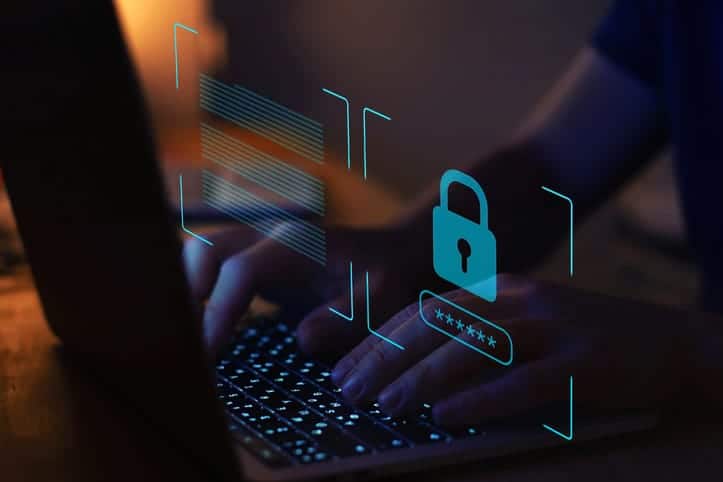6 Steps On How To Build A Secure IT Infrastructure
Why Is Keeping Your IT Infrastructure Secure Important?
Protecting your IT infrastructure from cyberattacks is extremely important for modern day businesses, both big or small.
Modern day problems require modern day solutions, and as more companies positively gear towards a digital transformation, this has opened up an array of digital risk and cyber threats.
As companies become digital based, cyber criminals develop new ways to access your company network and sensitive data, meaning secure IT infrastructure has become even more vital.
A security and data breach could not only lead to huge financial costs, but it could also put your company’s reputation on the line.
If you fail to properly secure your IT infrastructure, your company will be vulnerable to many types of security issues and cyber threats including distributed denial of service (DDoS) attacks, malware infiltration, account hijacking, data breaches and more.
Cyber-criminals may do this to gain control of your network, and all of your customer and company’s sensitive data.
The customer base you may have spent years growing will likely lose trust and confidence if there is ever a data breach.
Endangering your customers’ sensitive information could have big repercussions on how your business is viewed.
How Do You Make Sure Your IT Infrastructure Is Secure?

The six steps on to how make sure your IT infrastructure secure are:
1. Get a professional to conduct a security audit and IT assessment
If you are reading this article, then by now you have probably realised you need to secure your IT infrastructure against vulnerabilities. However, you might not know where to start, or depending on the size of your business, how to scale it.
You should enquire with an IT support company or IT professional to conduct a security audit for you.
A professional will be able to assess your network security, and highlight any weakness in your organisation’s IT infrastructure, and make recommendations based on those.
An IT professional should be able to tailor an IT security program specifically for your company.
2. Enforce IT Security Policies

Your IT administrators should create a set of security policies and procedures for members of staff within your company. This will include:
Remote Access Policies
If not already prevalent within your company prior to COVID-19, working from home has transitioned into the norm for most businesses where the employees work from computers.
However, if end-users need to gain access to the company network from places other than the office, or from their own devices, you should ensure that data is accessed securely to minimize the risk of data breaches.
A remote working strategy is needed, and one way is through the use of VPNs, which can help keep remote working secure by using a process of data encryption (encryption protocols) to build a secure tunnel for your information to travel through.
Strong Password Policies
Simple but important security practices include the use of password protection, which can help in preventing criminals from hacking into your network.
Passwords should have a level of complexity and be changed frequently, and these passwords should only be typed on secure devices to avoid keyloggers holding on to them.
Mobile Use Policies
BYOD (Bring Your Own Device) is becoming. more and more prevalent, and there will require a unique set of rules.
If your employee is using their own mobile device to access company data, this might expose your company to security risks.
A way to safeguard their mobile devices is to encourage password protection, in case they lose their device, as well as mobile antivirus programmes.
However, just having security policies in place will only be beneficial if everyone who works at your company is aware of them.
This means regular staff training must be conducted so that end-users are completely aware of the policies, and therefore efforts to protect your infrastructure is as successful as possible.
3. Update Your Antivirus Software & Firewalls
There is an everlasting threat from malware and viruses on your infrastructure security from malware.
These are constantly evolving and are often sophisticated enough to bypass basic security measures that may be put in place.
However, when your antivirus software is up to date, it is more likely to be able to detect the latest versions of malware and viruses and therefore is much more likely to be able to protect you from them.
On the other hand, a firewall is also important for cybersecurity, however it slightly differs in that it is a set of programs that protect your network from users in other networks.
This type of network security decides whether certain data or web traffic should be blocked or allowed to continue on its destination.
Although devices usually come with built-in firewalls such as Windows, Mac, and Linux computers, just as you should make sure your antivirus software, you must also make sure your firewall is too.
Firewalls reach an end of life date, where no more security patches and updates are released. Therefore, it is recommended that you replace your firewall every 3 to 5 years.
4. Backup Your Data
With companies storing their data digitally, a data breach may not be the only thing to be concerned about.
The possibility of losing some, if not all of your data could also have serious repercussions on your business.
Companies must ensure their data is backed up securely, in the case of malfunctions of natural disasters that could compromise that data.
This could be through backing up your data using an online backup service, such as cloud hosting services where you can safely and securely store encrypted data using cloud storage.
5. Use Hosting Solutions & Services
Employees may unwillingly compromise your network and data through an array of ways, such as by visiting websites that have infectious malware.
One way to prevent this is by using a cloud-based DNS hosting solution, an affordable, scalable and reliable way to keep your data protected and secure, as well as defend against DDoS attacks.
Malicious emails and phishing can also put your IT infrastructure at risk from malware and other threats.
However, you can use a hosted spam filter that will help block emails before they can attempt to infiltrate your network.
6. Outsource Your IT Support
There is a benefit in outsourcing IT support, in that they can be a cost-effective and streamlined security solution.
By outsourcing to an IT security service provider, you gain the ability to take advantage of their expert IT support, allowing skilled consultants to search for vulnerabilities in your IT infrastructure that you may not have even been aware of.
How GRIT Consultancy Can Help You

Here at GRIT Consultancy, we can set up a cost-effective and comprehensive IT security plan, including cloud hosting solutions, DNS management, online backup services and more.
By implementing a solid IT infrastructure, we can help keep your company and your company’s data safe and secure.
We offer affordable, flexible support packages to suit the needs of any business, both big and small.
Get in contact today.

